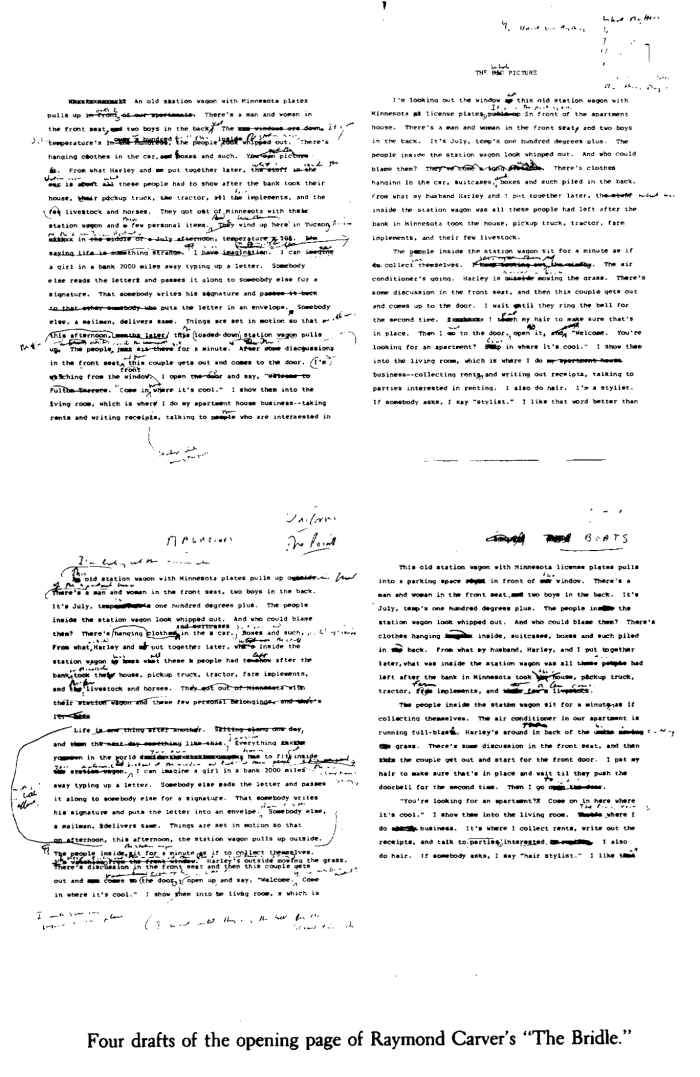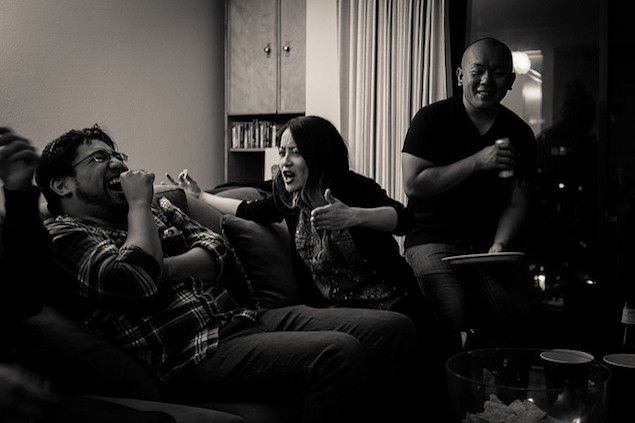Sociability • Communication
The Art of Listening
Many of us probably have a nagging feeling that we don’t listen enough to other people. Here we’re not going to make the guilt worse by telling you that listening is a good thing, worthy but in fact rather dull.
We’re going to show you that listening to others is first and foremost an interesting thing to do, something that could be as pleasurable for you as it is for your speaking companion.
And as a result, we try to minimise how much we’re listening – and maximise how much we are talking – because that’s how it feels like we’ll have the most interesting lives.
But is this analysis of pleasure really accurate? Of course there is a basic pleasure to be had in, as we put it, ‘hearing the sound of our own voice’. But we can also venture that this isn’t the real pleasure of talking about ourselves. The real pleasure of talking about ourselves lies in understanding ourselves, becoming clearer about who we are, what we feel, what we want and what we might do next. The pleasure of talking about ourselves lies in self-clarification, not merely in hearing our voices.
Generally we tend to believe that Self-Clarification will only be possible if we ourselves actually talk. But something far more interesting and redemptive is the case: we can sometimes end up best understanding bits of ourselves by listening to the stories of other people.
This might sound like a merely convenient – and sentimental – thing to say. But it is soberly true and the proof lies in an area we know very well: literature. Novels are stories of other people that we don’t mind hearing; because they are also, at their best, stories that teach us about ourselves.
We’re prepared to spend hours hearing other people – like Tolstoy or Proust or Virginia Woolf – talking about their ideas and adventures. And remarkably, we don’t mind not getting a single word of our own into the arena because we’re actively understanding bits of ourselves by listening to their stories.
This is what Marcel Proust had to say on this: ‘Every reader of a novel is in effect the reader of his own life, whose shape he is better able to appreciate thanks to the spectacles which the novelist has offered him.’
We might well reply that this is all very well, but that the average person we have to listen to is a lot less interesting than Marcel Proust. So no wonder we want to listen to the novelist and not the average person.
But the people we have around us are a lot more interesting than we think – if we knew how to listen to them and edit them properly.
The reason why so-called great writers are interesting to listen to (even when they talk about themselves) is that they have mastered the trick of teasing out from their experiences what is Universally Relevant from what is Locally Specific.
So-called ‘great writers’ might be telling us a story about their aunt’s childhood or a trip to the woods, but in the way they tell us these things, they will be adept at teasing out the Universal Dimension – so that their stories end up being not just local anecdotes with no echoes in the minds of others, but Universal Stories that simultaneously narrate pages in the Universal book of Humankind: they end up being their stories and ours.
In truth, we are all living out stories in the Universal Book of Humankind. But we’re apt to describe this life so badly, to get so bogged down in local details and unnecessary digressions, that we bore our audiences, giving Listening to someone very negative associations. We haven’t got the wrong sort of life; we have the wrong techniques for narrating that life. And by narrating badly, we help to create an enduring suspicion of the act of having to listen to someone else speak.
Here is some of what goes wrong when we try to narrate our lives:
a) We keep latching onto factual details: we go on about times, places, external movements – not realising that things become interesting only when people say what they feel about what happened, not merely what happened.
b) We often get overwhelmed by an emotion we experienced and insist upon it rather than attempting to explain it. So we say, again and again, ‘it was so beautiful’ or ‘it was the scariest thing in the world’ but without accurately unpacking the feeling and thereby being able to make it live in someone else’s mind.
c) Just when we promise to get a bit interesting with our narration, we take fright. We get scared of our own emotions, which can threaten to trigger feelings of unbearable sadness, confusion and excitement. We take flight into superficiality.
d) Then we don’t stick with one story. There is so much in our minds, we keep opening up new subplots.
When the Good Listener encounters these unfortunate ways of talking, they don’t panic; they try to act like editors.
Being a good listener is like being a good editor in a publishing house. Consider the relationship between the American writer Raymond Carver, and his NY editor Gordon Lish.
The Editor: Gordon Lish The Writer: Raymond Carver
Lish heavily edited Carver – or, as we might put it, listened to him in a hugely creative and transformative way; a way that can teach us about the art of listening in ordinary life as well.
– Lish hugely boosted Carver’s confidence; he made him feel the world was listening and that it was worth properly unpacking experiences. He did the editorial equivalent of what in conversation we can call looking closely into someone’s eyes with tenderness and sympathy.
– He stopped Carver from descending into local tedium. He took Carver’s experiences in rural America and gave them a universal dimension, ensuring that Carver is now famous from Korea to Germany as well.
– He stopped Carver digressing; he kept him focused on a central theme in each story he wrote.

What we need to do as listeners is a version of what Lish did for Carver. In listening, we can also shape, tease out, cut out, emphasise – in the name of getting the latent really good story to emerge from our companion’s mind.
So when listening, stop your companion digressing; say things like, ‘So a minute ago you were saying that….’ Bring them back to the last coherent and emotionally ‘alive’ part of the story.
Draw them away from numb surface details to deeper emotional realities. Ask: ‘what did that feel like for you…?’
Allow for the unusual and the weird. Use signs that suggest an open mind. Maybe someone is about to say that they felt attracted to their sister or stole money from a company. Don’t do anything that might close off a vulnerable confession. ‘Say go on…’ You’re not a judge, you’re a friend.
The Good Listener knows that one of the best ways to understand an issue in one’s own life is to hear it discussed through the life of someone else – and furthermore, they have the editing skills to make sure they can find themselves in the words of others.
That way, listening is no longer a chore. It’s about the most interesting thing we can do.





























